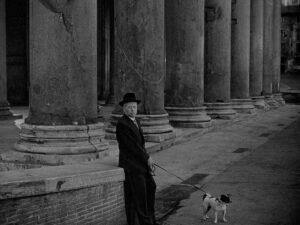From 8 1/2 (1963) to Bicycle Thieves (1948), we rank the the best Italian movies of all time.
The Italian film industry got its start in the early 1910s. Major production companies cropped up in Naples, Rome, Turin, and Milan. The early Italian silent era films received great international acclaim. One such significant artefact in the history of cinema is Cabiria (1914) by the pioneering Giovanni Pastrone. Martin Scorsese often credits Pastrone for introducing the ‘epic film’ format, influencing the works of D.W. Griffith and Cecil B. DeMille. But in the aftermath of World War I, there was a major decline in filmmaking in Italy.
The rise of the National Fascist Party and Mussolini saw an exponential rise in filmmaking, centred in Rome. However, these were propagandized versions of life under the Fascist regime. The end of World War II and Italy’s crushing defeat brought about huge changes in its film industry. The filmmakers of this era weren’t driven by money. They showcased the harsh realities around them. It led to one of the most well-known film movements, called Neo-realism. This was the beginning of the Golden Age of Italian cinema.
From Vittorio de Sica, Luchino Visconti, Federico Fellini to Antonioni, Pasolini, Ettore Scola, and Lina Wertmuller, each decade in Italian cinema produced some of the greatest filmmakers ever. There are a lot of spectacular Italian films from the 1940s that it’s tough to zero-in on the 30 best. Still, I’ve made an effort to include diverse and pivotal works of Italian cinema.
Very quickly then, here are the 30 best Italian movies of all time:
30. Caesar Must Die (2012)
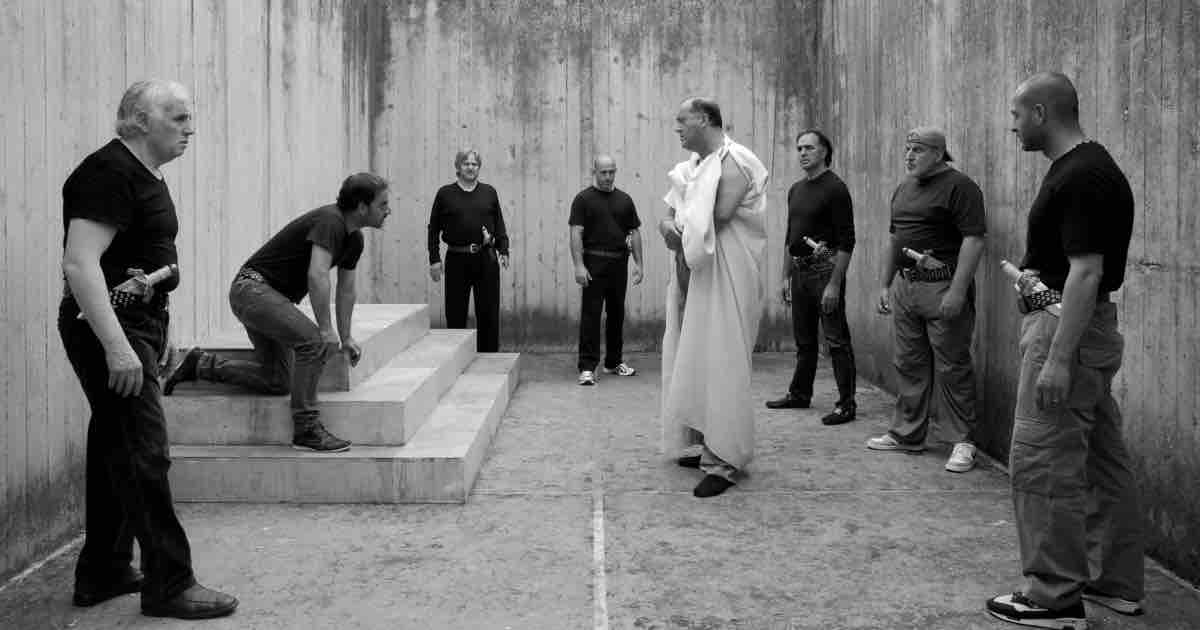
Taviani brothers’ vibrant quasi-documentary follows a group of prisoners from the maximum security prison of Rome’s Rebibbia Prison. However, Caesar Must Die isn’t a conventional look at a prison life. It rather offers a brilliantly perceptive look at art, as the inmates rehearse and perform Shakespeare’s Julius Caesar. Winner of the Golden Bear Prize at Berlinale, Caesar Must Die is a study in creative awakening and escapist qualities of art. The filmmaking brothers – Paolo and Vittorio Taviani – have directed films for more than five decades. Their most familiar work was Padre Padrone (1977) which won Palme d’Or at Cannes.
29. The Son’s Room (2001)
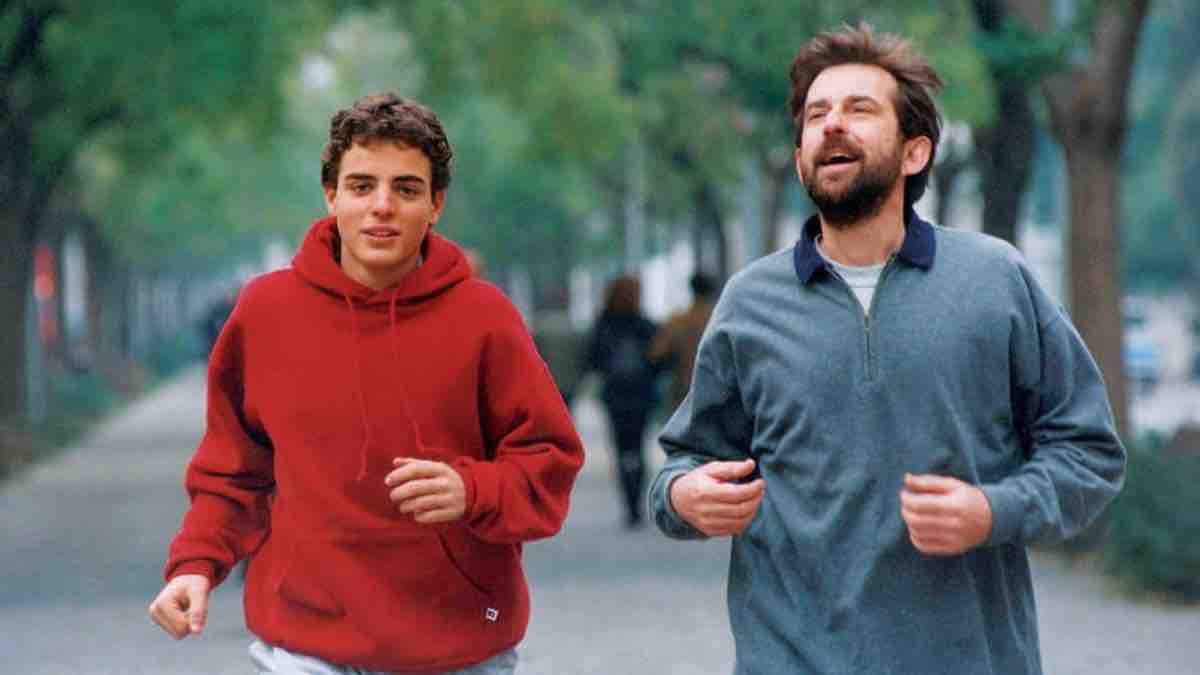
Director, writer, and actor Nanni Moretti is often compared with Woody Allen, and in fact known as ‘Italian Woody Allen’. While both are multi-hyphenate artists, I find Moretti’s works to be surprisingly odd, more profound and mature. The Son’s Room follows a seemingly happy middle-class Italian household. Their idyllic life is disrupted, when the family receives news of their teenage son’s tragic death. Nanni Moretti plays the crisis-ridden father’s role who works as a psychoanalyst. Winner of Palme d’Or, The Son’s Room dives into the depths of bereavement sans sentimentality. The subtle performances from the magnificent cast make it an unforgettable film.
28. Gomorrah (2008)
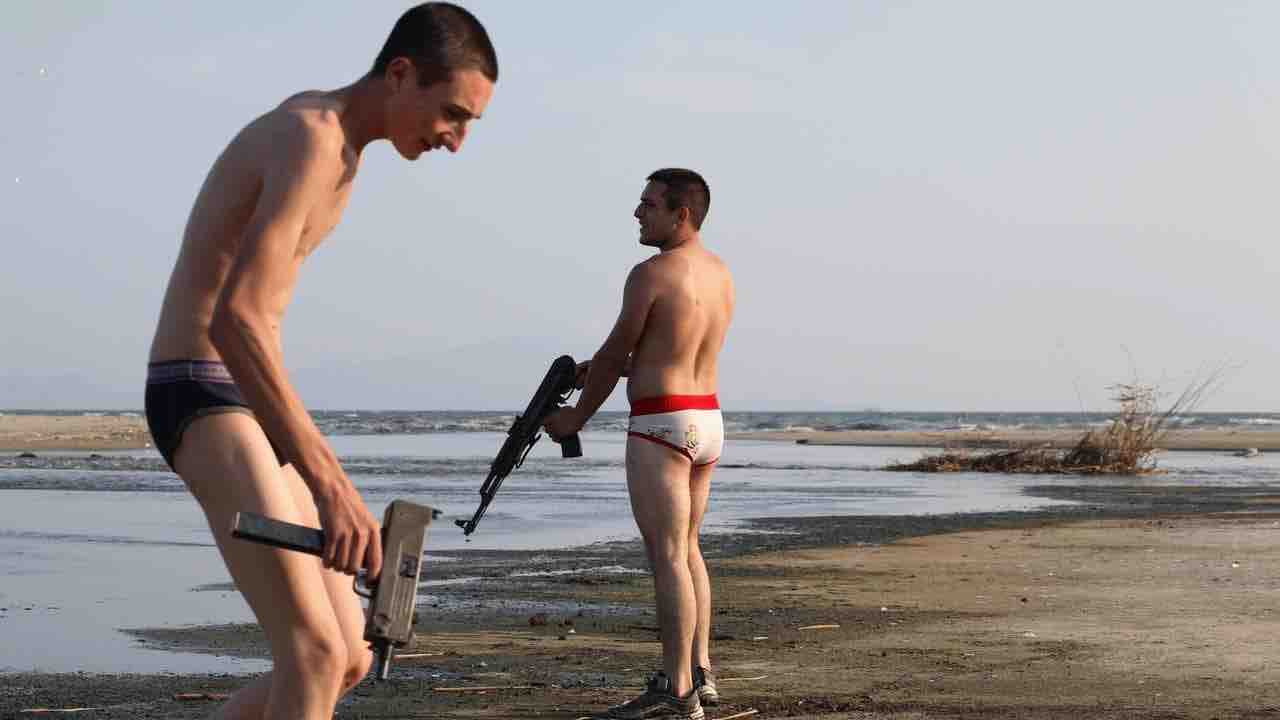
Matteo Garrone’s deglamorized look at the Italian mafia will reward only the patient viewers. Mario Puzo’s novels including Godfather dramatized the inner world of the Sicilian mafia clans. Journalist Roberto Saviano’s best-selling 2006 book was a detailed exposition of the ‘Camorra’ clan that’s based in and around Naples. Director Garrone, working alongside five screenwriters, avoids the flamboyant excesses of mafia drama. The film explores the frightening realities within the criminal organization sans a cinematic viewpoint. The narrative unfolds through seemingly disconnected stories, and gradually moves towards a powerful, chilling ending.
27. Fists in the Pocket (1965)
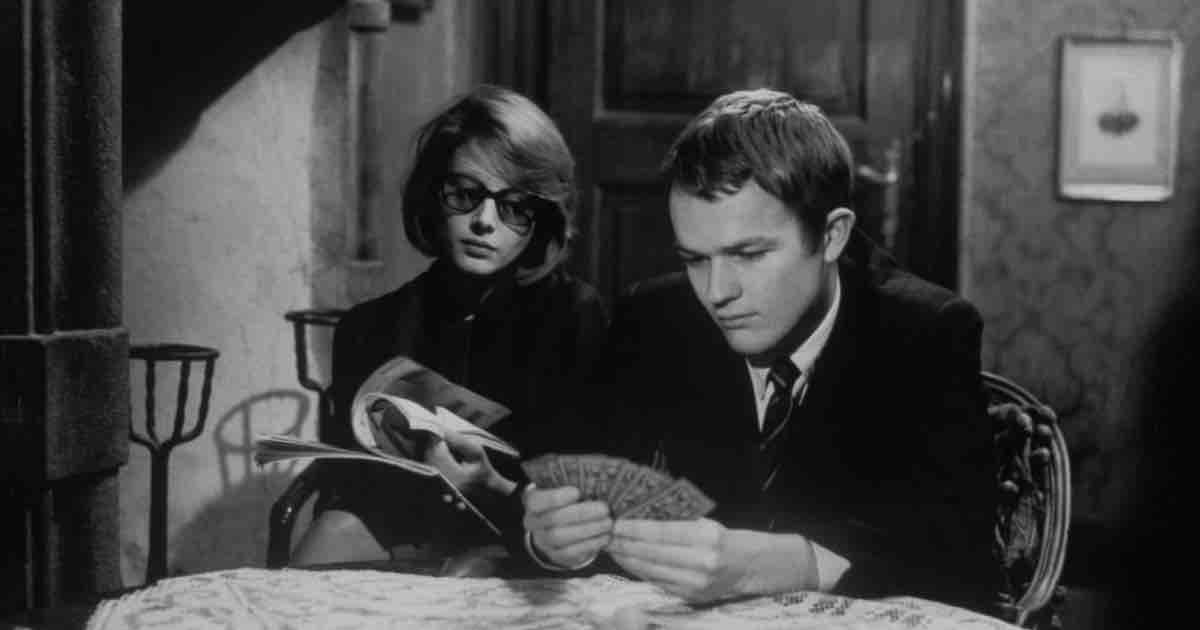
Veteran filmmaker Mario Bellochio’s darkly comic feature-film debut revolves around a dysfunctional family that’s literally as well as spiritually sick. Alongside Bernardo Bertolucci’s Before the Revolution (1964), Fists in the Pocket signalled a new phase in Italian cinema. Freed from the clutches of Neo-realism, the then New Italian Cinema was politically and thematically daring. Despite the dark and absurdist humor, Bellochio never shies away from understanding the characters and their tragic dysfunctionalities. Besides, Bellochio has been unable to recreate again the visual intensity and creative energy that are at display here.
26. Big Deal on Madonna Street (1958)
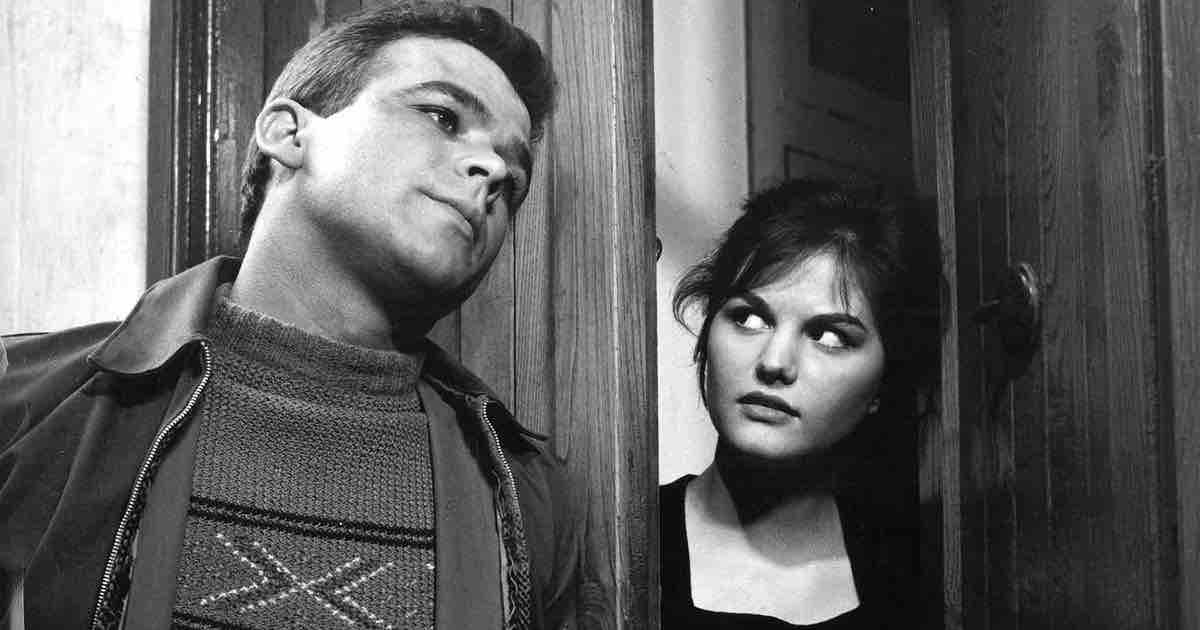
The great Mario Monicelli’s films extract soulful comedy and irony from the most tragic of situations. In Big Deal on Madonna Street, we follow a motley group of incompetent low-level criminals attempting to steal the contents of a weakly protected safe. Monicelli made this heist movie in the era of great heist films including Asphalt Jungle (1950) and Rififi (1955). However, Monicelli employs his great comic precision to make fun of scenarios and images associated with cinematic heists. The film’s spectacular cast includes Marcello Mastroianni, Vittorio Gassman, and Claudia Cardinale.
25. The Gospel According to St. Matthew (1964)
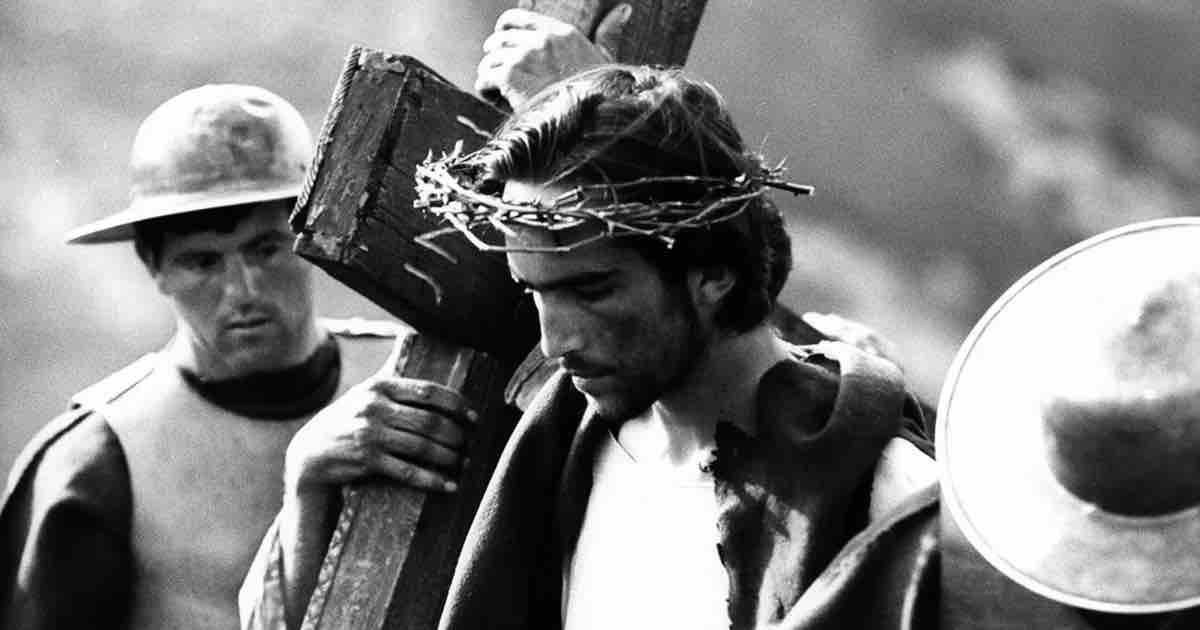
The avowed Marxist, atheist, and gay filmmaker Pier Paolo Pasolini’s film offers a controversial and compelling account of the life, death, and resurrection of Jesus Christ. Catholicism is predominant in Italy. In fact, the filmmaker interestingly received the blessings of the Pope and assistance from the Church. Pasolini’s gritty and unrefined depiction draws directly from the Bible. Nevertheless, the subject matter was cleverly inculcated with the filmmaker’s own subversive and radical politics. Pasolini’s minimalist aesthetics and highly impressive use of sound effects adds to the powerful and humane interpretation of the Gospel.
24. The Great Beauty (2013)
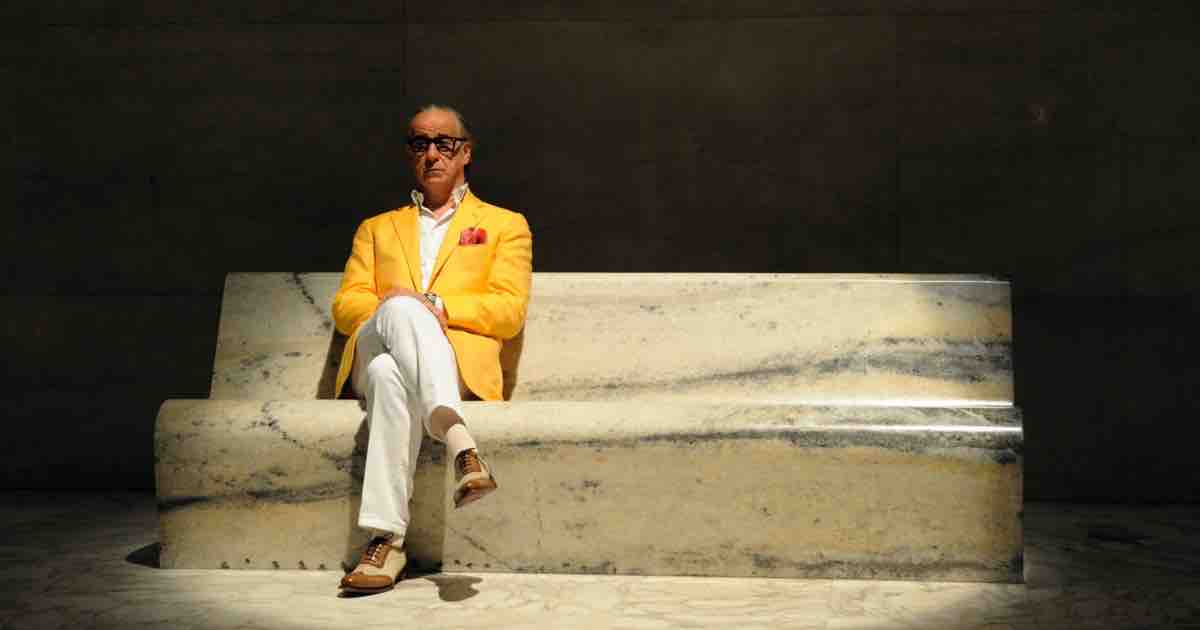
Paolo Sorrentino’s freewheeling drama comes across as a paean to classic Italian cinema, particularly to the works of Fellini. It revolves around Jep Gambardella, a disillusioned elderly writer who is also a great partier. Films that explore the emptiness or spiritual quest of wealthy bourgeois society don’t generally interest me. But Sorrentino’s invigorating visuals, sense of humor, and Toni Servillo’s dazzling screen presence is marvelously captivating. Sorrentino takes a sly dig at the Italian ‘high society’. At the same time, he celebrates the undisputed beauty of Rome.
23. Il Sorpasso (1962)
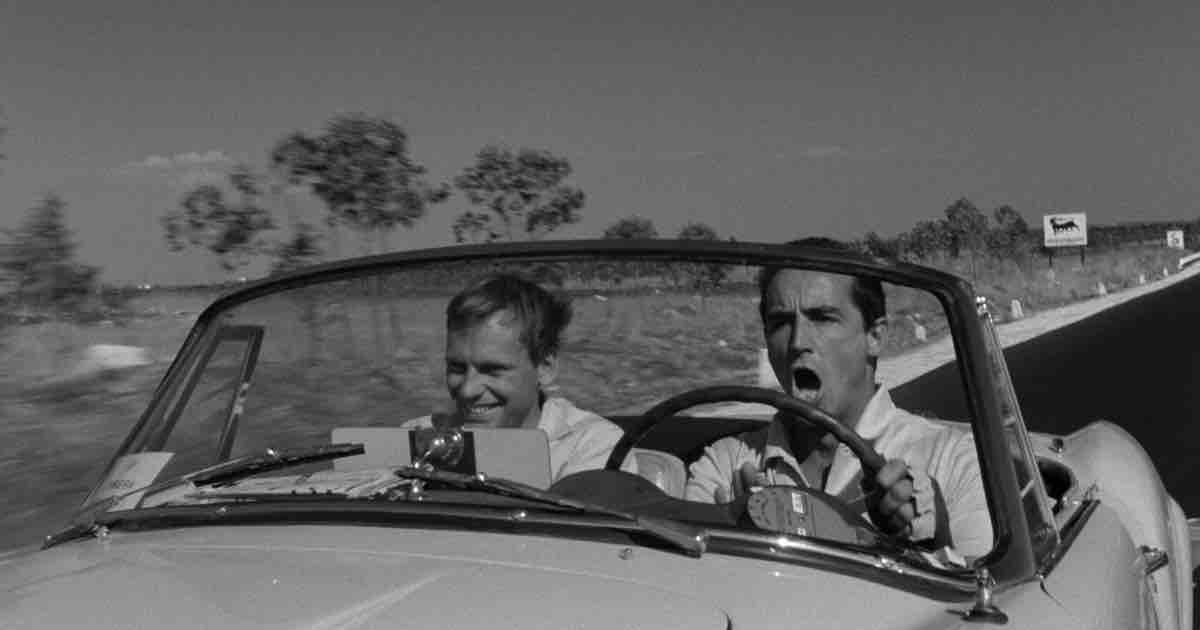
Dino Risi’s Il Sorpasso is now widely regarded as one of the best Italian comedies. However, it didn’t gain much critical acclaim during its time. Risi’s film set the precedent and influenced the later era road-trip films like Easy Rider, Midnight Run, Thelma and Louise, and Sideways. The film revolves around a character of extremes. Played by Vittorio Gassman, Bruno, the self-styled playboy is both charismatic and scary. Bruno plans a trip through Rome and is accompanied by a shy, insecure law student Roberto (Jean-Louis Trintignant). Risi’s direction provides abundant energy to the narrative that’s sprinkled with moments of pure comedy.
22. Seven Beauties (1975)
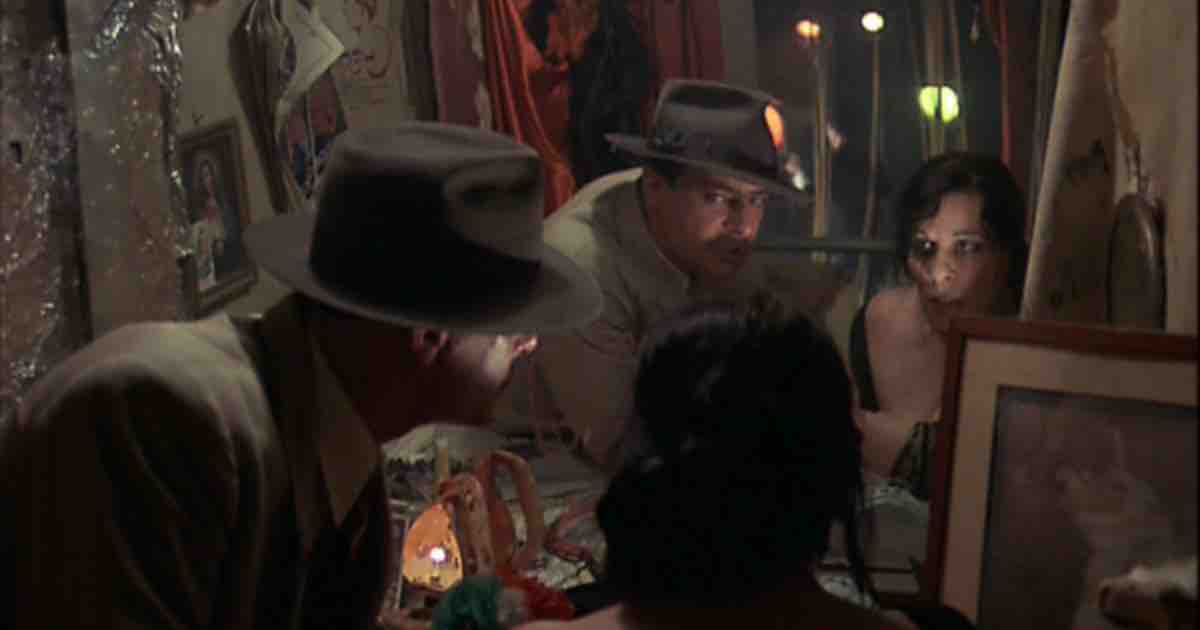
Lina Wertmuller was a daring Italian filmmaker of the 70s. She used satire and theatricality to explore her nation’s tragic legacy alongside sexual politics. Seven Beauties is one of her most densely layered dramas that features a spectacular performance from Giancarolo Giannini. The film revolves around a not-so-honorable minor criminal in Naples during World War II. When he deserts from the warfront, he is captured by the Nazis and sent to a concentration camp. Though Seven Beauties may not sound like a light-hearted affair, Wertmuller uncannily employs absurdist comedy to deliver shocking truths about survival and dehumanization.
21. Cinema Paradiso (1988)
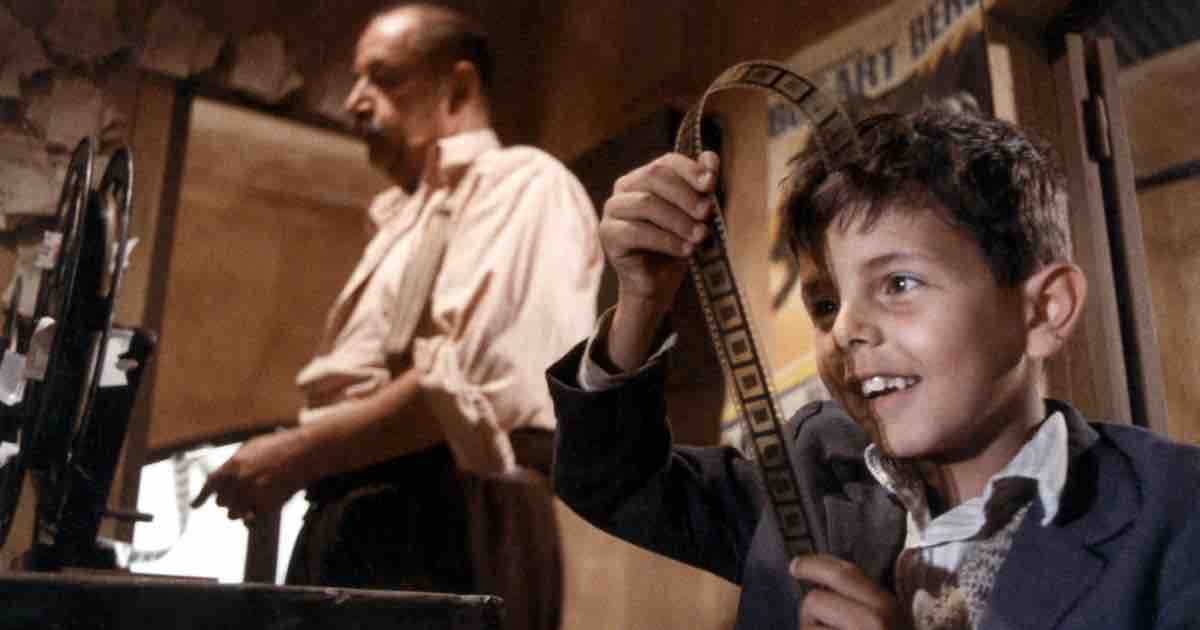
Giuseppe Tornatore’s beautiful love letter to cinema and memory offers one of the most moving cinematic experiences ever. The film charts the poignant relationship between cinema-obsessed Salvatore and the projectionist, Alfredo (Philippe Noiret). The first of the film’s three sections shows Salvatore as a precocious kid. This portion offers a fascinating portrait of the early 20th century Italy where priests censor the kissing scenes from the film. Despite being sentimental and ostentatious at times, Cinema Paradiso is an ode to cinema that brought communities together.
20. We All Loved Each Other So Much (1974)
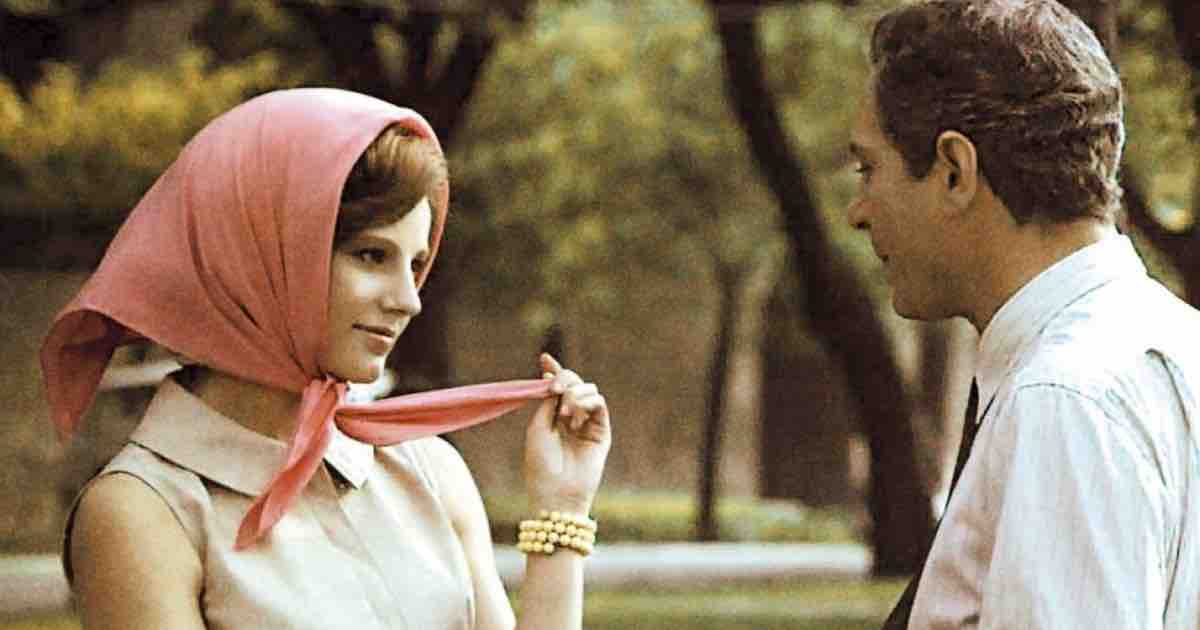
Ettore Scola was one of the masters of Italian comedy. He began his career as a screenwriter, and is renowned for his writing in Risi’s Il Sorpasso. Scola’s comedies, however, can’t be dismissed as mindless entertainment. Much of the humor is derived from the painful everyday realities. This particular film tells the story of a group of friends torn apart in the post-World War II society. Though set in a time different from our own, it’s a very relatable tale about aspirations, hopes and failures.
19. A Special Day (1977)
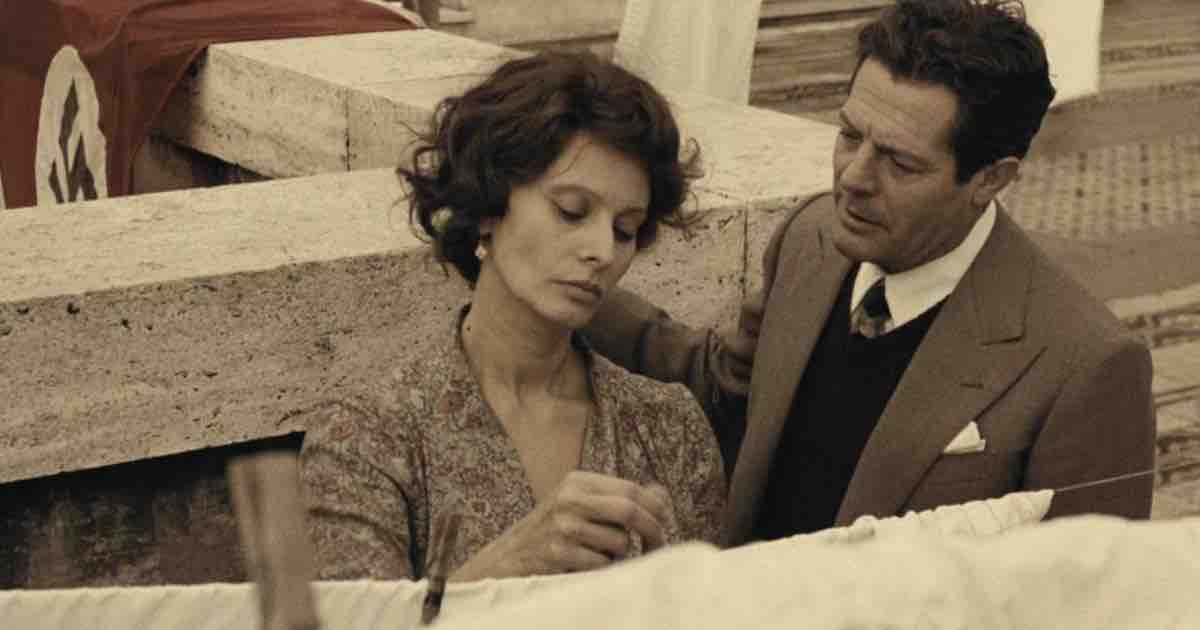
Ettore Scola’s marvelously staged drama is set on a day in 1938 when Hitler visited Rome. The visit captured the unprecedented rise of Fascist movement. But Scola’s film isn’t about the meeting. It rather showcases a chance meeting between a frustrated housewife and a handsome yet sad bachelor on that same day. As the day unfolds, both of them comprehend the suffocating political atmosphere of their nation. A Special Day features Mastroianni and Sophia Loren, two great Italian stars playing the most grounded roles in their career.
18. La Dolce Vita (1960)
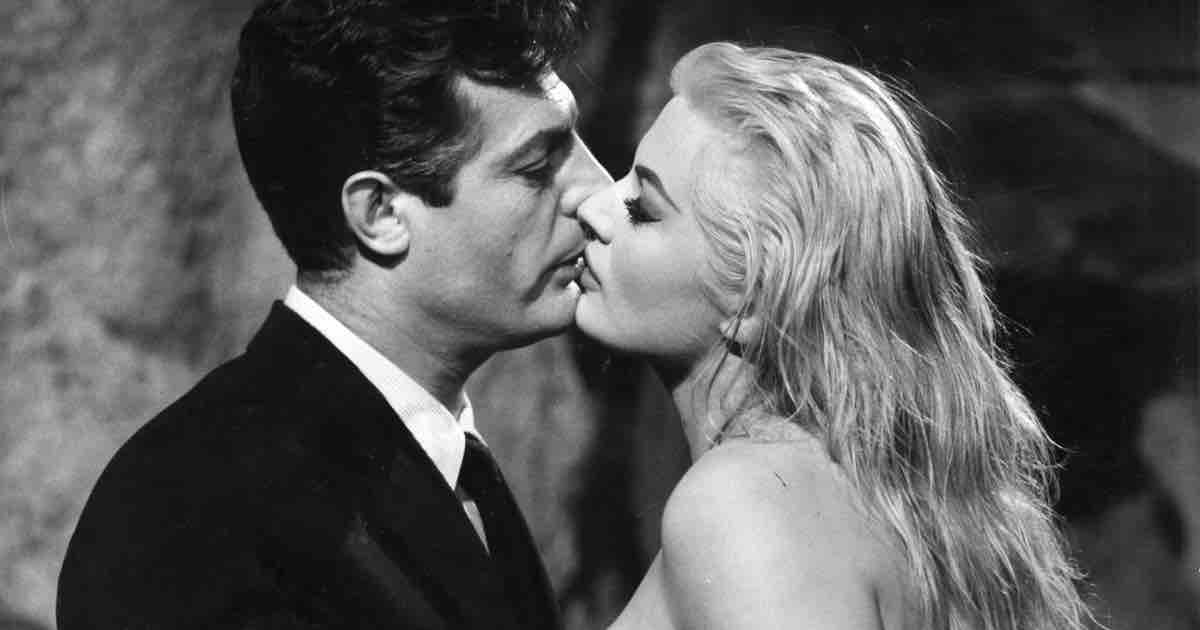
Frederico Fellini’s Palme d’Or Award-winning film is an intriguing satire on the hedonistic excess of the European privileged class. The modern Rome in Fellini’s cinema is seen through the eyes of a tabloid journalist named Marcello Rubini. La Dolce Vita doesn’t have a conventional narrative structure per se. It’s rather composed of expressionistic vignettes, set in dynamic environments, as Marcello is on a quest to find contentment. The film contains a lot of striking sequences that led to coining the adjective ‘Felliniesque’. It’s used to describe Fellini’s outlandishness and extravagant style.
17. Il Posto (1961)
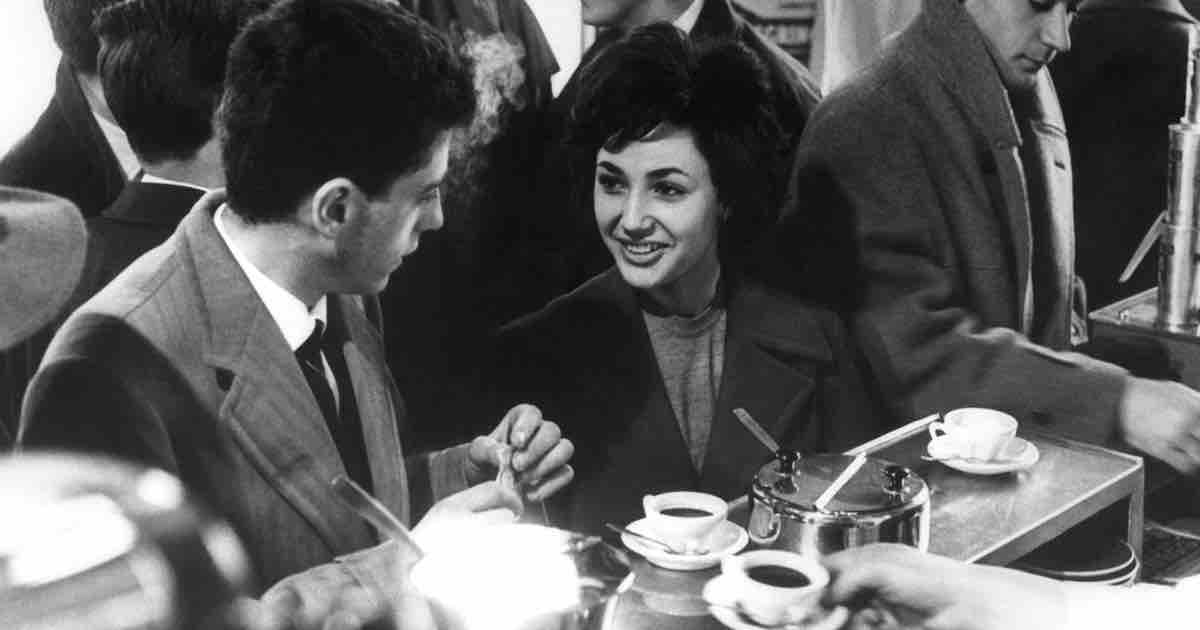
Ermanno Olmi might be not well-known among the post-war Italian filmmakers. Yet he is an important auteur who captured the finer details of everyday life. Il Posto was a nuanced character study of a working class young man named Domenico. Shy and anxious, Domenico opts for a clerical position in a Kafkaesque office atmosphere. Il Posto might have a modest plot, but the emotions it evokes are deeply felt. We can relate with the sad and lost look of Domenico. There’s also good-natured humor as Olmi focuses on the trivialities and pettiness within such spaces.
16. 8 1/2 (1963)
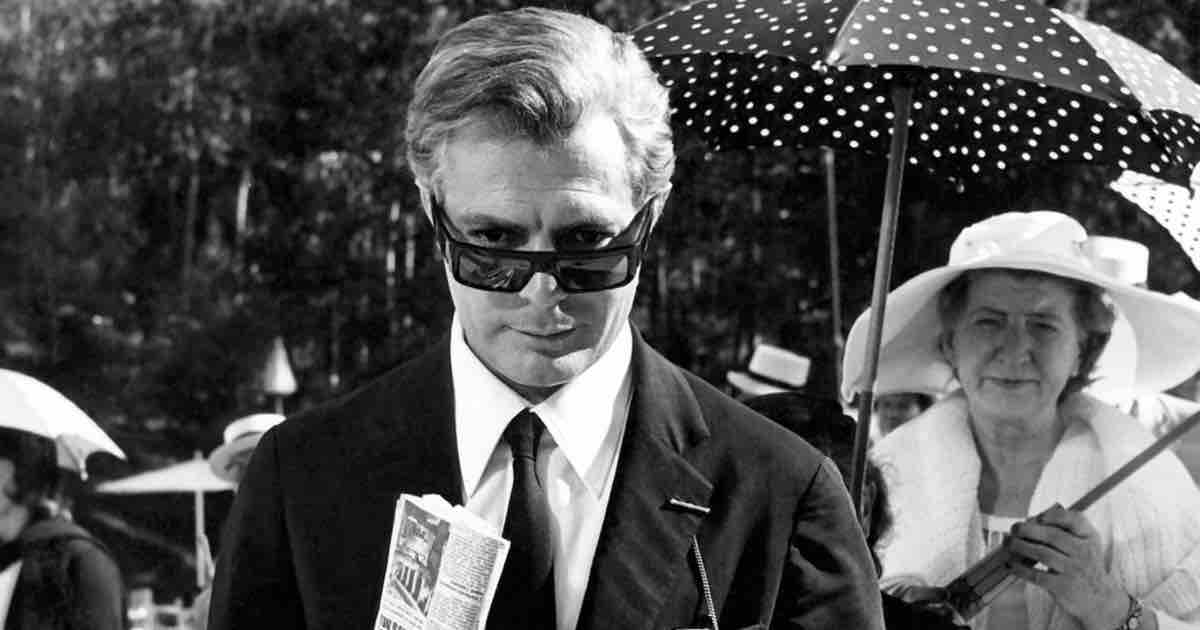
The lines between reality and fantasy started to blur in Fellini’s films from 8 1/2. It follows a filmmaker’s creative difficulties as well as his complicated relationships with women. The ever cool Marcello Mastroianni is Fellini’s stand-in in this quasi-autobiographical narrative. A plot description of 8 1/2 can never do justice to the bizarrely imaginative imagery of Fellini. In the hands of another filmmaker, it would have been annoyingly self-indulgent. But Fellini’s artistic vision is often rewarding and breathtaking.
15. Accattone (1961)
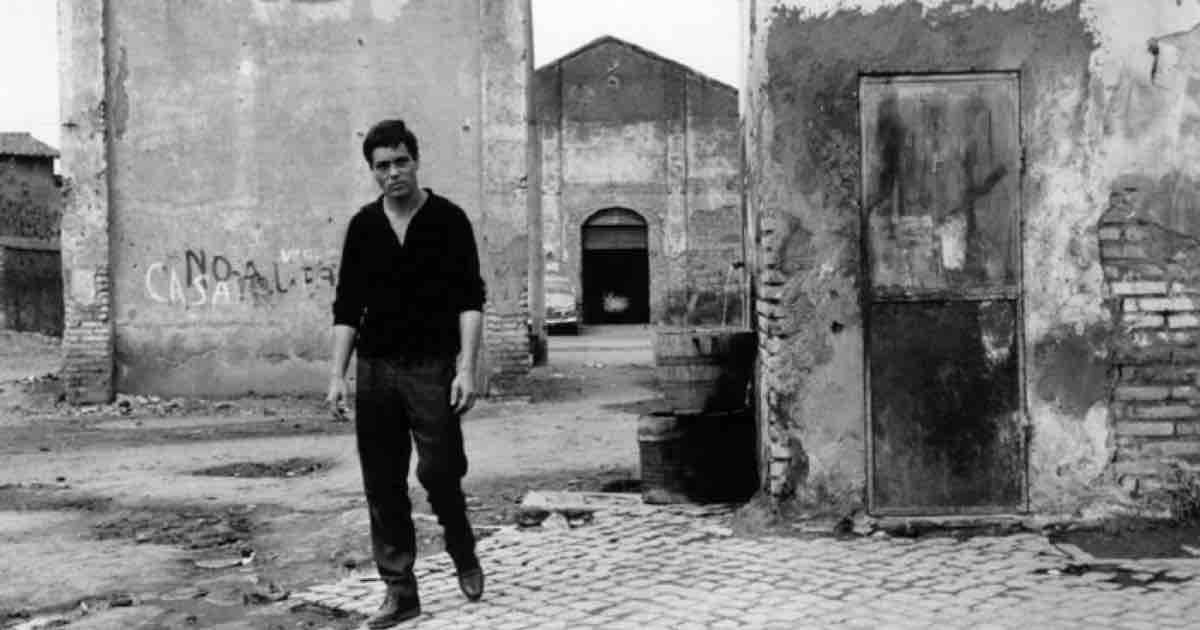
Accattone marks the directorial debut of Pier Paolo Pasolini. He began his career as a screenwriter and worked with Fellini in Nights of Cabiria (1957). Accattone was based on one of Pasolini’s novels. The film is set in the seedy outskirts of Rome, and follows a cynical pimp named Vittorio ‘Accattone’ Cataldi. Pasolini’s unflinching depiction of slum life deftly captures how the downtrodden are trapped in the vicious circle of poverty and criminality. Pasolini doesn’t dismiss the eponymous character’s inherent misogyny and self-destructive behaviour. But he closely examines the social factors that contribute to his doom.
14. The Earth Trembles (1948)
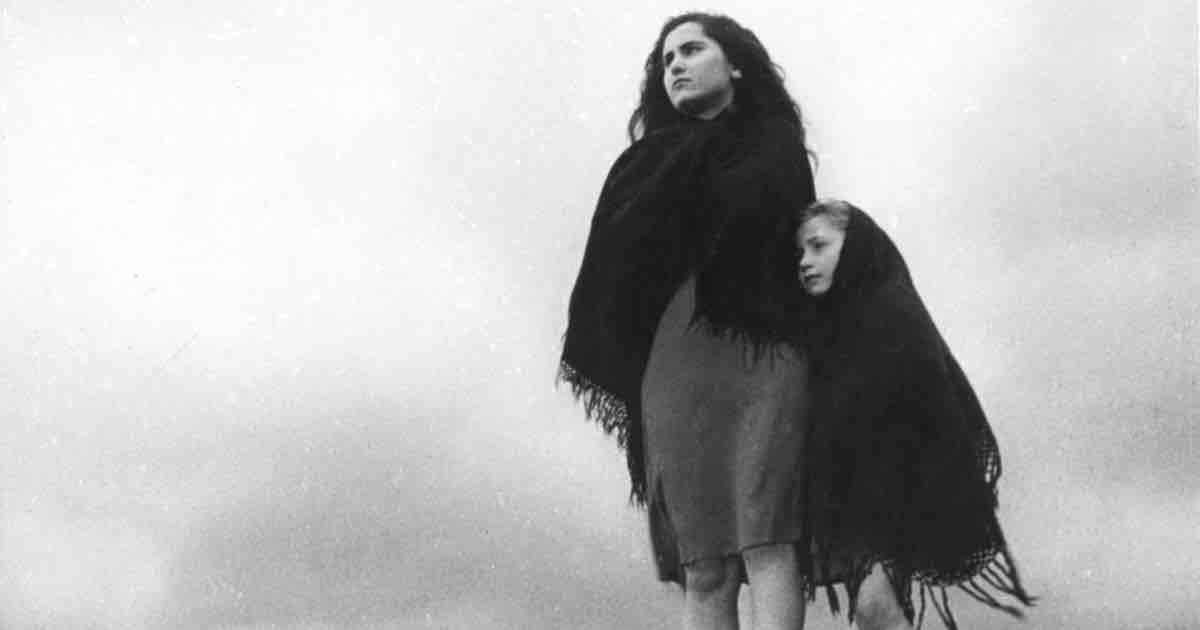
Luchino Visconti was born into an aristocratic family, and was later drawn towards Marxist philosophies. He began his filmmaking career by working as an assistant to the great French filmmaker Jean Renoir. He also trained in theater and opera. The Earth Trembles was Visconti’s second film in a career that spanned over three decades. The film revolves around an impoverished family in a Sicilian fishing town. The everyday working conditions of the fishermen are hauntingly portrayed. This operatic neorealist film was made with a cast of non-professional actors.
13. The Best of Youth (2003)
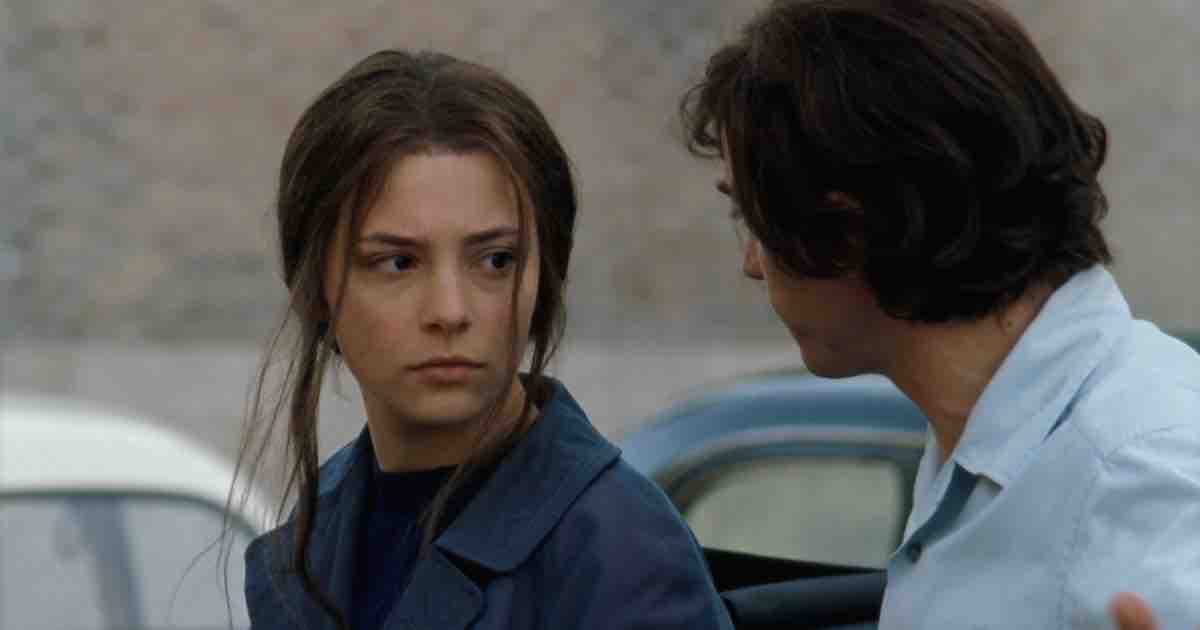
Marco Tullio Giordana’s monumental six-hour drama tracks down four decades of Italian political and social history. The sprawling history is approached through the perspective of two brothers – Matteo and Nicola. The personal and the political brilliantly mix together as the characters constantly evolve and are shaped by crucial social changes. The Best of Youth was originally made for television but later got released directly to theatres. It became a critical and commercial hit in Italy, though not much known outside the country.
12. La Notte (1961)
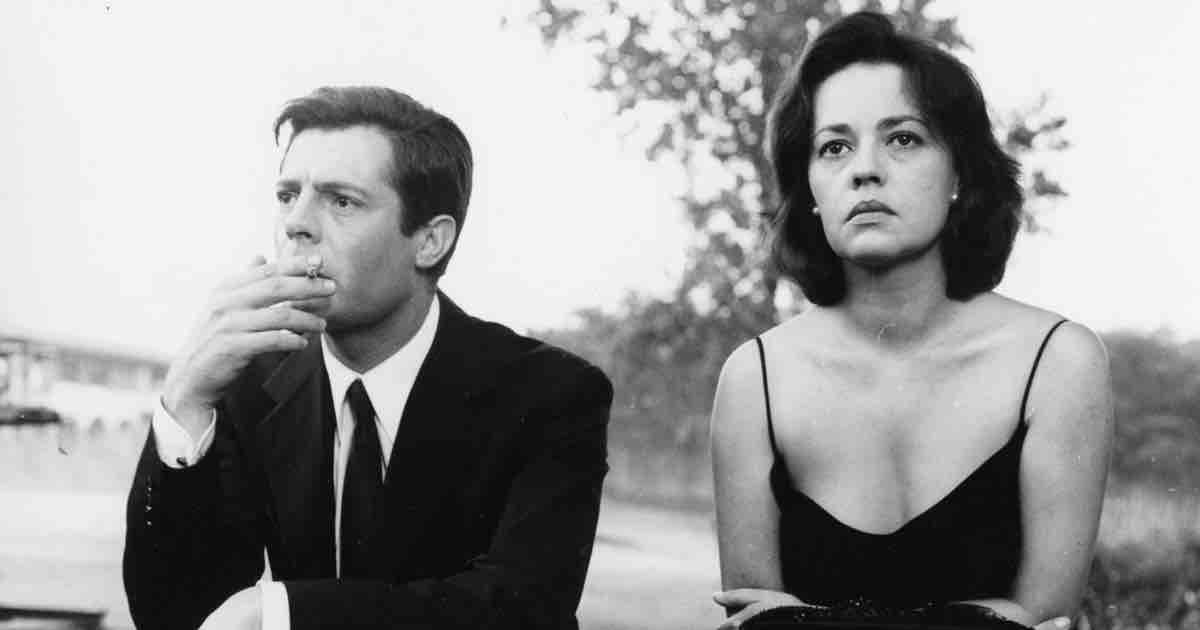
Michelangelo Antonioni’s study of unbridled hedonism and alienation in modern life may not work for all. His storyline and plot structure aren’t really complex. At the same time, they’re richly symbolic and deal with deep-seated emotions. Though Antonioni’s films are set in the cities and often revolve around young couples, one can argue that his characters’ travails are a reflection of the human condition itself. In La Notte, we follow a married couple for a day as their marriage is seemingly disintegrating. Antonioni’s strikingly unique mise-en-scène offers interesting observations about people without any extraneous drama.
11. La Strada (1954)
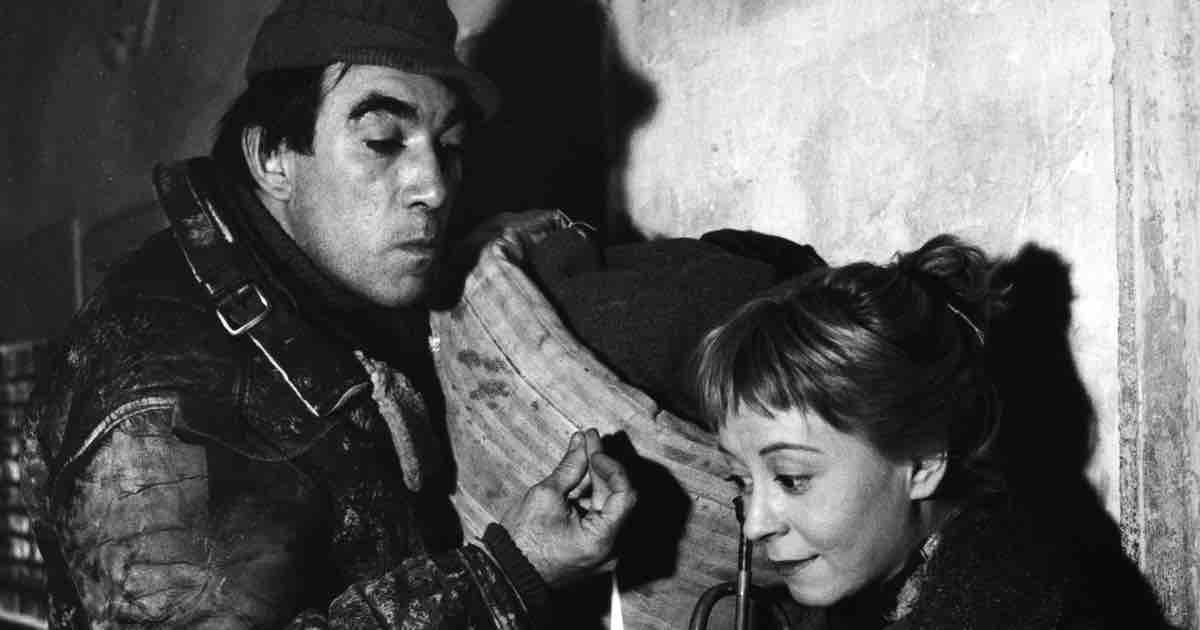
La Strada is often known as Fellini’s transitional film. It was his attempt to move away from the neorealist tradition. Naturally this didn’t go well with the politically-minded critics. But La Strada brought great international acclaim to Fellini which later led him to make more fanciful films. The film tells the tale of Gelsomina, an innocent young peasant woman who is sold to a travelling strongman. Gelsomina’s suffering and yearning gradually become a parable for the human condition. The most unforgettable aspect of this pensive drama is Giulietta Masina’s magnificent performance in the central role.
10. Christ Stopped at Eboli (1979)
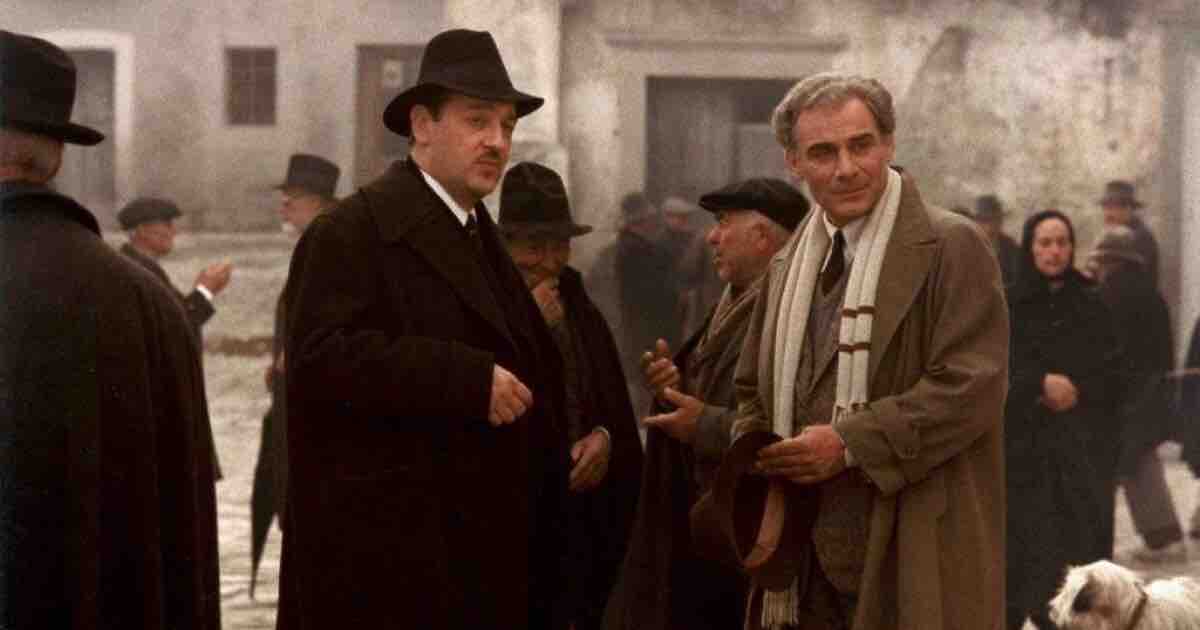
A committed leftist, Francesco Rosi is one of the greatest political filmmakers of all time. Christ Stopped at Eboli is based on a remarkable memoir of the same name. The 220-minute film focuses on the ‘internal political exile’ of writer, painter, and activist Carlo Levi in the year 1935. Mussolini’s Fascist authorities punished Levi for his political nonconformity by exiling him to a remote region in Southern Italy. In the little village of Gagliano, Levi closely observes life cut off from the State and civilization. The land also offers no comfort for the local peasant population.
9. L’Avventura (1960)
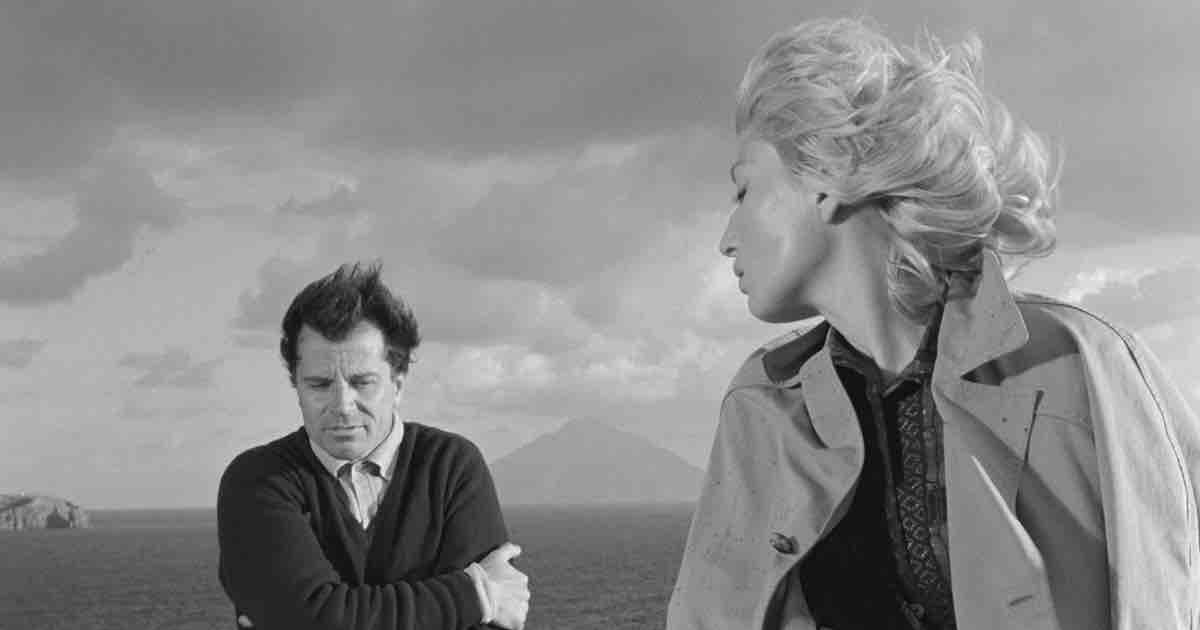
Michalangelo Antonioni’s L’Avventura is one of the most hugely popular art house movies that have been part of numerous ‘greatest’ films list. However, the film has a very slender plot. A group of wealthy socialites go on a yachting trip. One of the women goes missing. The frustrating search that ensues brings together the woman’s fiancé and her best friend. Though it sounds like a mystery, it’s a character study about people whose emotions are deeply buried. Antonioni’s compelling filmmaking style portrays a rapidly modernizing Italy with its lost values and existential ennui.
8. Salvatore Giuliano (1962)
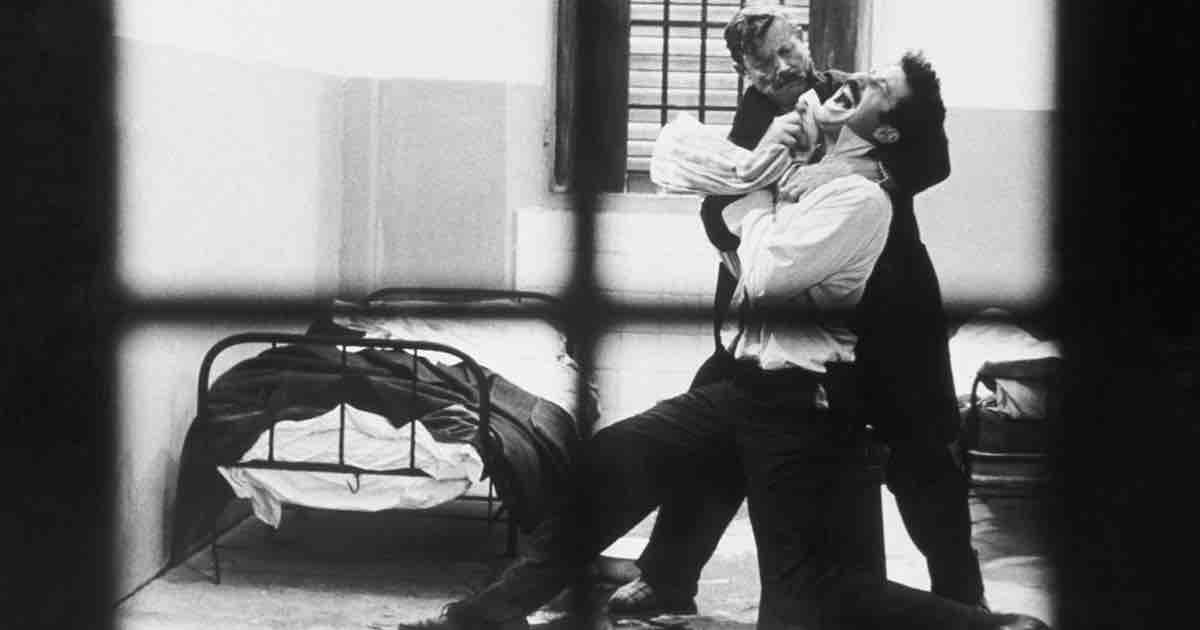
Francesco Rosi’s beguiling drama is a predecessor to revolutionary political films like Battle of Algiers (1966) & Z(1969). The film opens with a shot of the eponymous Sicilian bandit Giuliano’s dead body. He was murdered in cold blood. But the narrative is neither about the bandit nor does it try to solve his murder. Rosi rather offers a clear-eyed portrait of how the power centers – government, military, mafia – came together to control post-war Sicily. In fact, Giuliano himself is often relegated to the periphery and Rosi’s complex political dissection becomes the distinguishable element.
7. The Tree of Wooden Clogs (1978)
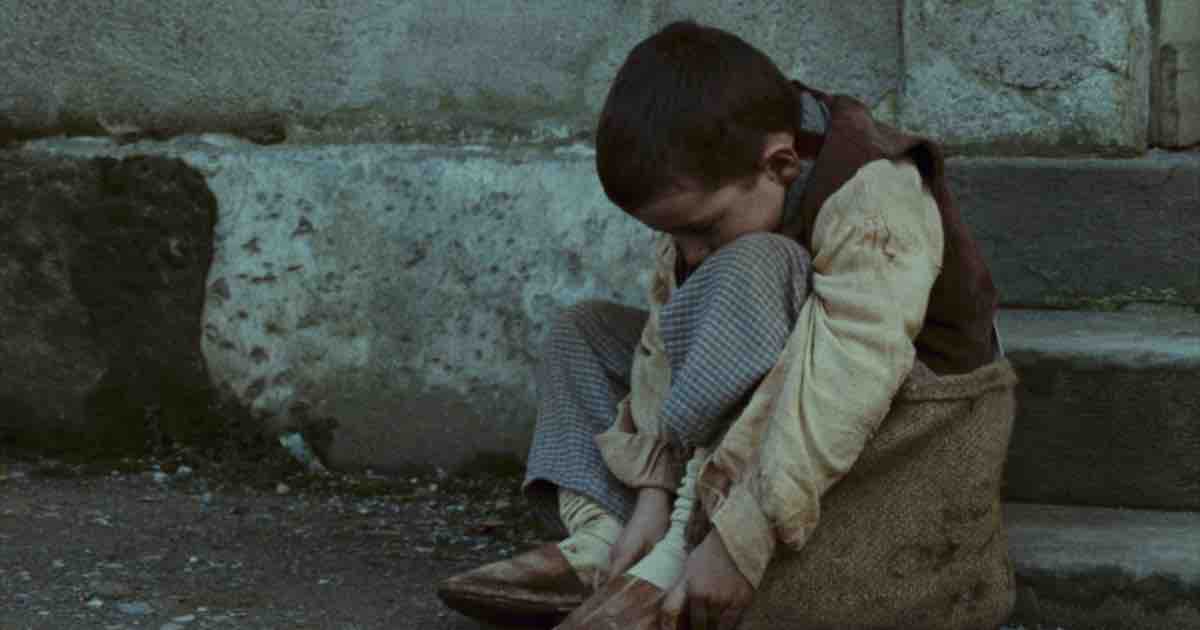
Ermanno Olmi’s sublime masterwork is a study of the human spirit and resilience. The 3-hour long, Palme d’Or-winning film is set in Lombardy, circa 1900. It is more or less a time-capsule that closely examines the travails and small pleasures of impoverished farm workers. Movies tend to romanticize the life of close-knit rural communities. Olmi’s portrayal is authentic and bereft of any sentimentality. The greatest appeal of the film is its ensemble, which mostly consists of non-professional actors. Olmi’s meticulously crafted imagery is deeply perceptive and gracefully takes us back in time.
6. Investigation of a Citizen above Suspicion (1970)
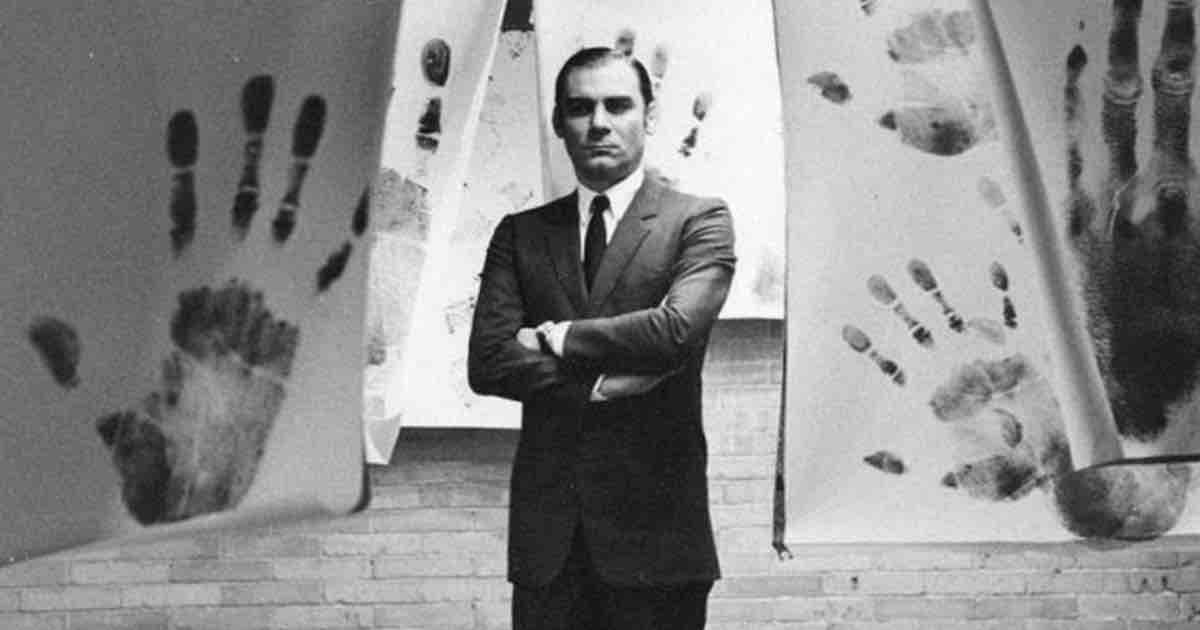
Elio Petri’s biting political satire follows the devilish experiments of a neurotic chief detective. Bolstered by the magnetic performance of Volonte, the central character becomes the symbol of the authoritarian forces. Like any stories that deal with infallibility of law and bureaucracy, Investigation… is riddled with Kafkaesque strains. In fact, similar to what Kafka does with his pointed tales, Petri critiques the power structure. He reveals the obscure mechanisms essential to keep alive the hegemony. The film was a success in its time, and went on to win the Best Foreign Film Oscar.
5. The Leopard (1963)
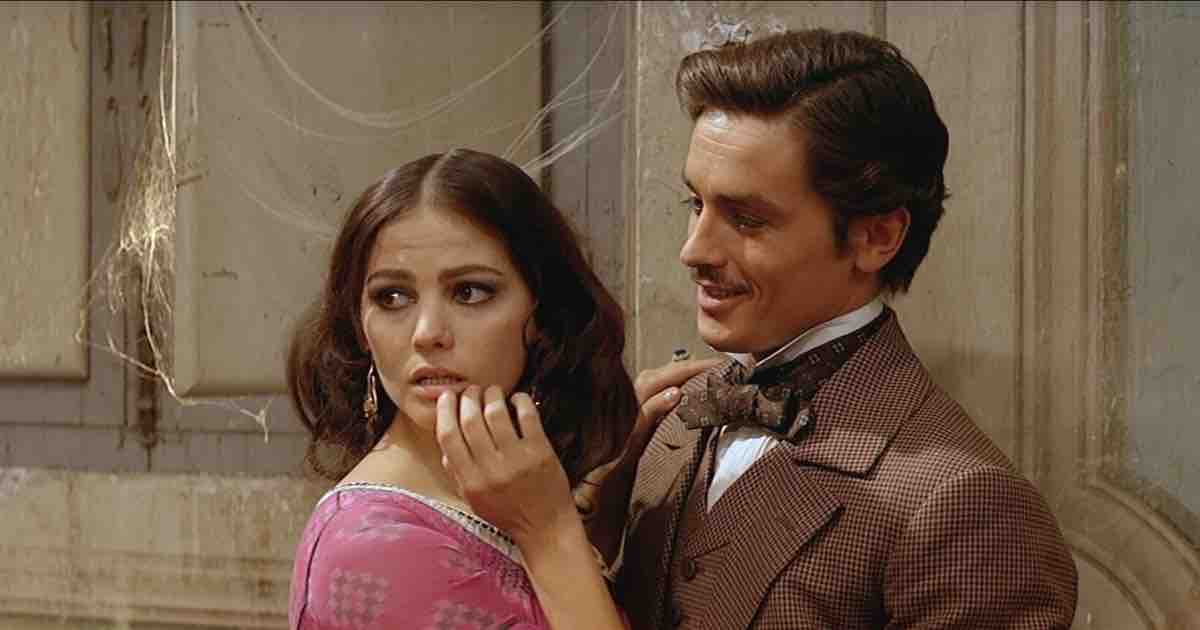
Based on Sicilian writer Giuseppe Tomasi di Lampedusa’s 1958 novel, The Leopard is a breathtaking epic about the aristocratic class. Set in the 1860s, the narrative follows the political maneuverings that unfolded during the unification of Italy. One of the central characters is Prince Salina, an aristocrat whose prominence fades with the rise of the powerful working class. The film was celebrated for its aesthetics which was a key influence on Coppola’s Godfather. Besides, the international cast which includes Burt Lancaster and Alain Delon offer commanding performances.
4. Bicycle Thieves (1948)
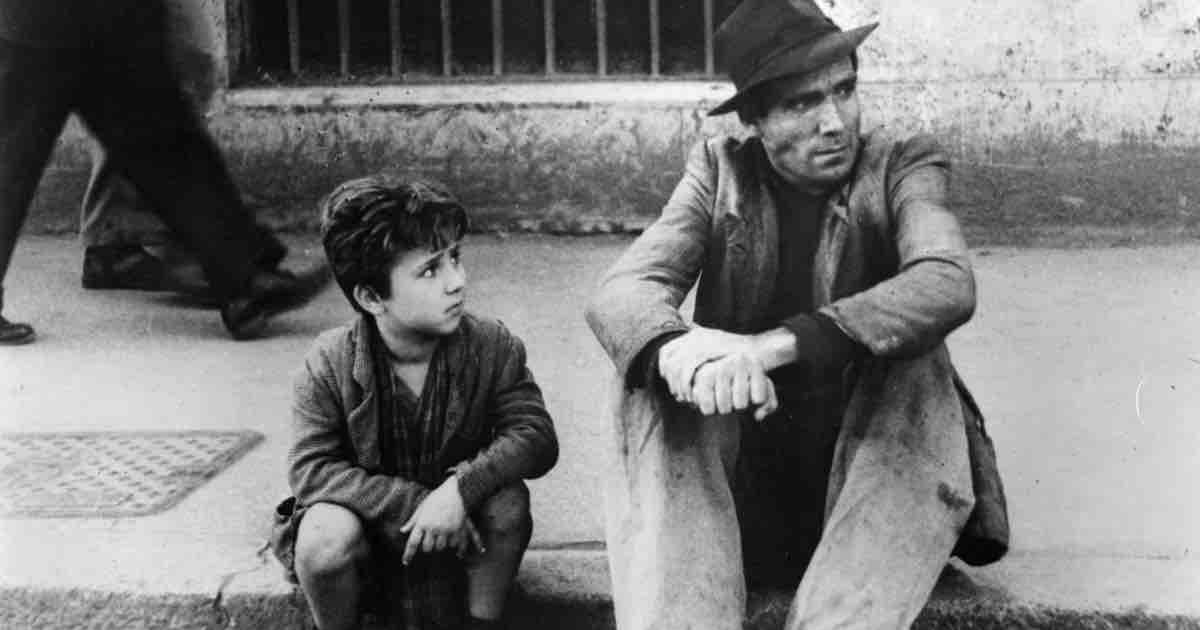
Bicycle Thieves is a landmark cinema for its time. It tells an oft-heard and very simple story of a poor and unemployed laborer. He lands a job that requires a bicycle. But he loses the promise of a job amidst the ruined post-war Italy. De Sica’s film is often limited as a documentation of lives in post-war Italy. But Bicycle Thieves is more a reflection on the human condition. It shows us a world with all its injustices, disappointments as well as hope. Bicycle Thieves won a special Oscar award before there ever was a category of Best Foreign Film.
3. Rocco and his Brothers (1960)
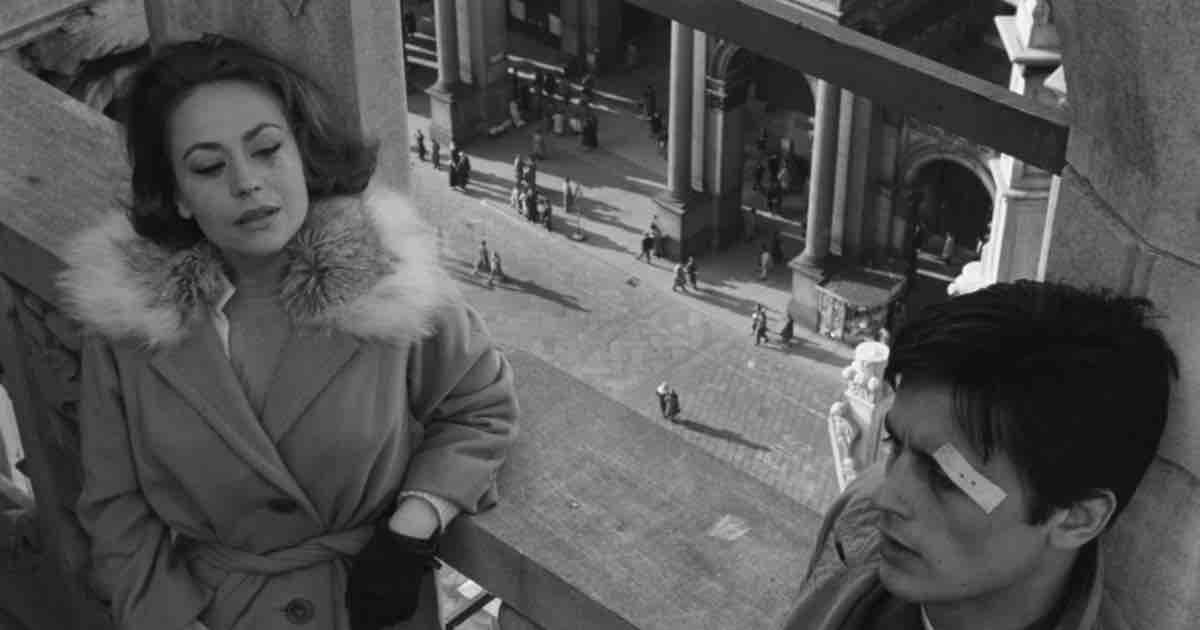
Visconti’s tragic melodrama opens with the eponymous young and destitute characters arriving by train to Milan with their old mother. They have left their home Lucania, although they are generally known as ‘people from the South’. To Visconti, Milan is one of the central characters. And the city shapes the brothers’ lives as they assert their identities amidst poverty, fraternal rivalry, and cruelty. Visconti was one of the foremost neo-realist filmmakers. But here he brilliantly blends neorealism with melodrama. In fact, he took up this path from his powerful historical melodrama Senso (1954). In Rocco…, he was at the peak of his powers.
2. Roberto Rossellini’s War Trilogy
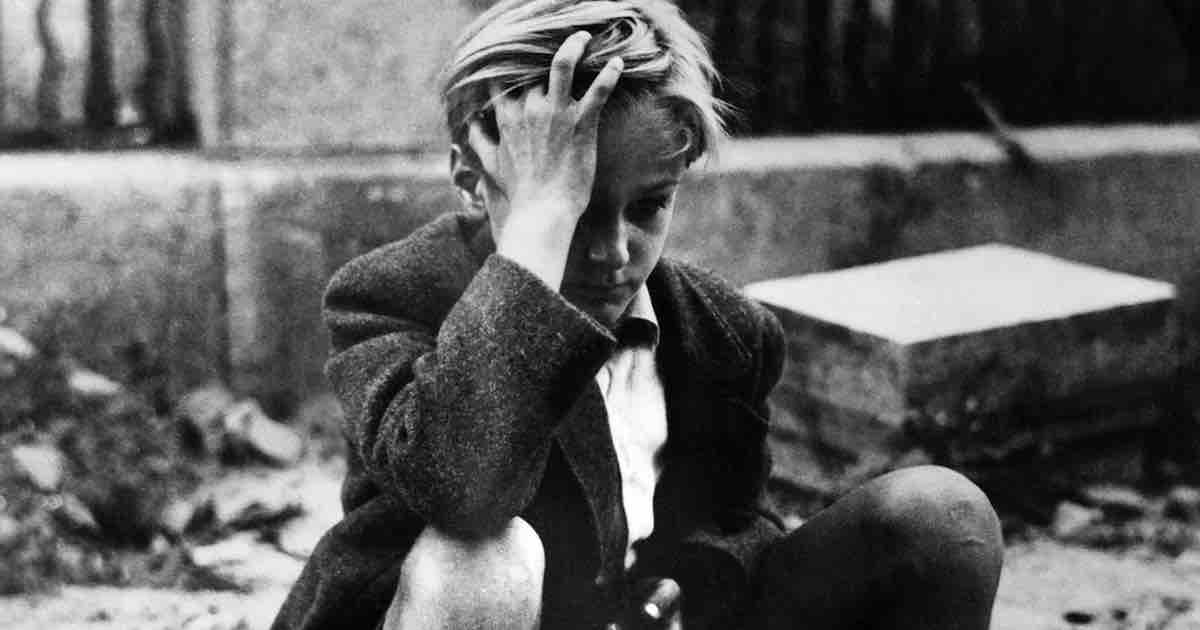
Rossellini’s Rome, Open City initiated the Italian Neo-realism and ushered in the golden age for Italian cinema. The three films in his War trilogy – Rome, Open City (1945), Paisan (1946), and Germany, Year Zero (1948) – explored the impact of war on the civilians, particularly, the impoverished, women, and children. Rossellini’s power lies in his well-attuned documentary aesthetic and in extracting naturalistic performances. The movies were mostly shot on location, immediately after the end of World War II. It’s a lamentation for a war-torn society which unfortunately still resonates across time.
1. Umberto D. (1952)
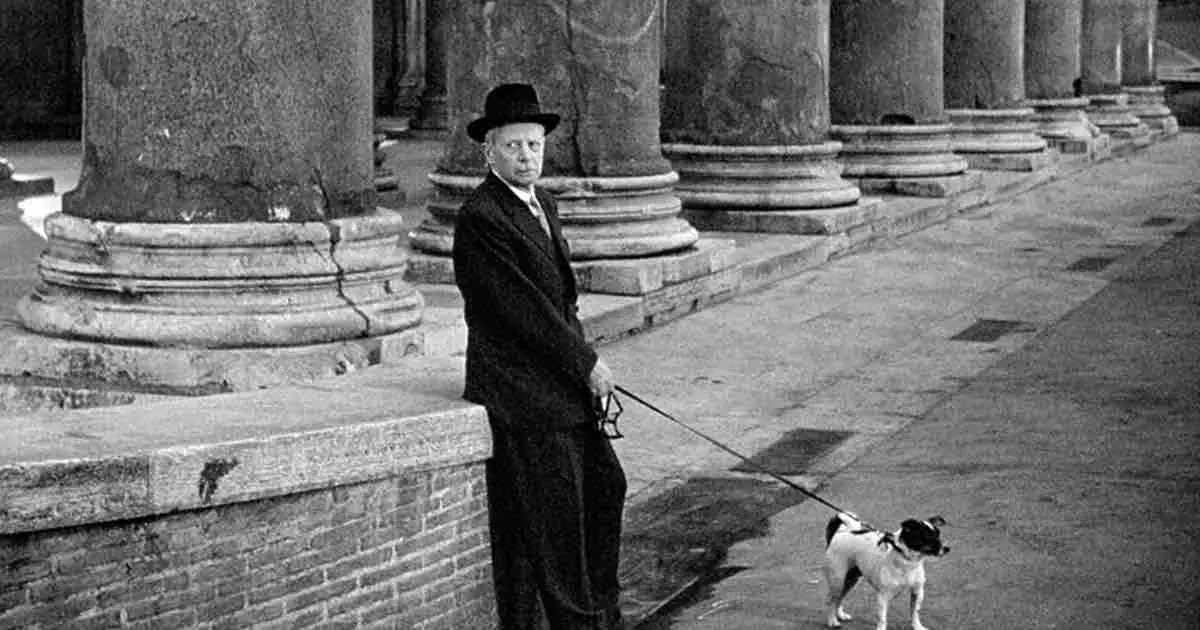
Vittorio De Sica’s poignant neo-realist drama chronicles an old pensioner’s efforts to hold onto the little he has and owns. De Sica was one of the foremost auteurs of the neo-realist cinema. Though Bicycle Thieves was the director’s most well-known work, Umberto D is clearly his best. In fact, here De Sica more than documents the miseries of the old man. There’s a much understated quality to the film that we feel a sense of intimacy to the characters. It’s emotionally driven, but there’s no melodrama. The film, however, was a commercial failure. It was viewed as a needless criticism in the times of post-war recovery.
Conclusion
There we are! These are some of the best Italian movies ever made. The omission of spaghetti Westerns and giallo films might seem blasphemous. Sergio Leone’s great western genre films were mostly American co-productions and featured American stars. Of course, Italian cinema has produced a shocking number of great films within a span of three decades that I had to leave out of a few. Some of these include Corbucci’s The Great Silence (1968), Bertolucci’s The Conformist (1970), Visconti’s White Nights (1957), De Sica’s Two Women (1960), Lattuada’s Mafioso (1962), Fellini’s I Vitelloni(1953) and Amarcord (1973).
Tell us your favorite Italian films and what we missed in the comments below.

